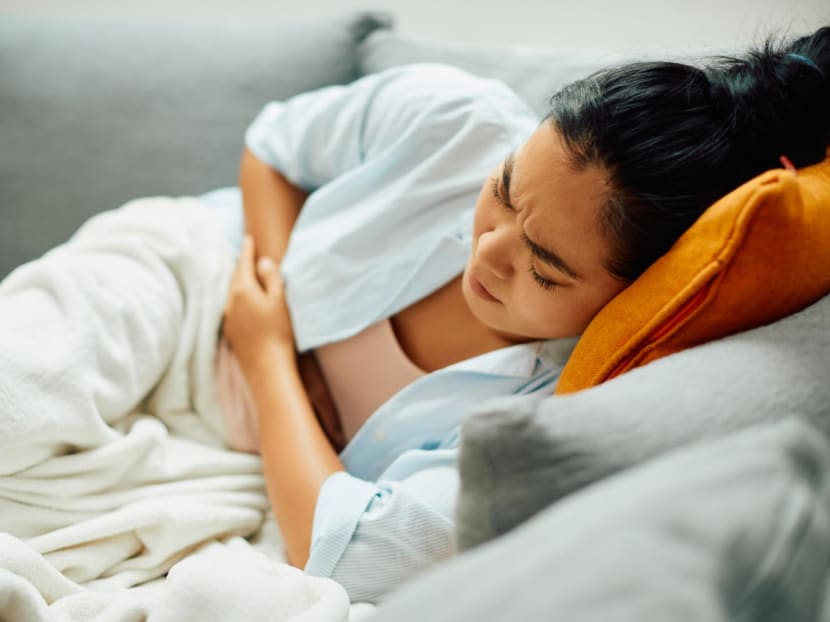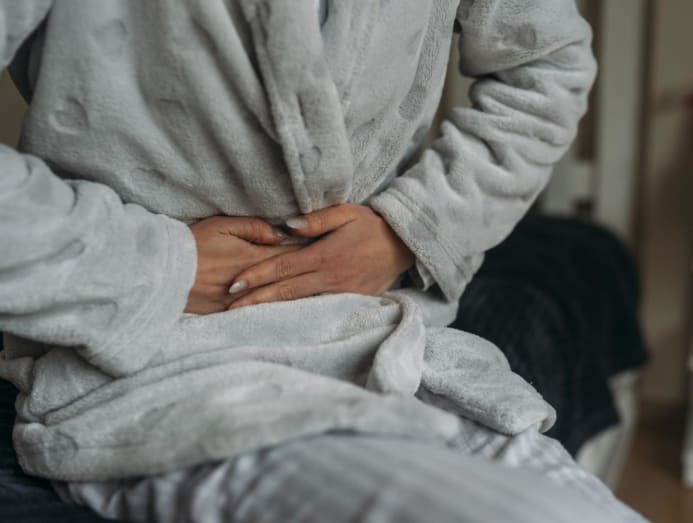Endometriosis and painful periods: New guidelines now help GPs diagnose the condition earlier
Symptoms of the gynaecological disease can vary among women, making it difficult to diagnose. The checklist, launched in line with Endometriosis Awareness Week from Mar 3 to 9, will better equip general practitioners to treat it without delay.

More action has been taken to equip doctors with updated guidelines on the diagnosis and early treatment of endometriosis – the condition itself often mimics other health conditions such as irritable bowel syndrome and pelvic inflammatory disease. (Photo: iStock/Drazen Zigic)
There’s a need to help general practitioners diagnose endometriosis better as it can be challenging for both patients and doctors to recognise the symptoms, said doctors at a media session on Wednesday (Mar 2) to launch two initiatives targeted at the gynaecological condition.
“Diagnosing endometriosis can be difficult because the symptoms can vary; some have no symptoms while others experience bad pain,” said Dr Andy Tan Wei Keat, a consultant at the Obstetrics and Gynaecology Centre, Singapore General Hospital (SGH).
There’s a high prevalence of endometriosis in Asia, and there’s a significant delay of diagnosis – an average of seven to 10 years’ time.
“It can also mimic other conditions such as irritable bowel syndrome and pelvic inflammatory disease,” Dr Tan added.
The Endometriosis Protocol and Checklist aims to help and support GPs in the diagnosis and early treatment of endometriosis, provide guidance in counselling patients, and when to refer them to specialists.
“There are about 8,000 primary care physicians in Singapore, according to the MOH website. We hope to reach out to as many as possible to increase endometriosis awareness and this protocol also serves as a quick reference guide to enable the GPs to diagnose endometriosis confidently and start treatment if necessary,” said Dr Tan.
Women themselves are also encouraged to be proactive about identifying endometriosis symptoms, which include:
- Chronic pelvic pain
- Period pain
- Period-related pain during urination or bowel movements
- Bloating
- Pain during or after sex
- Diarrhoea or constipation
- Abdominal cramps
As part of an initiative to raise awareness about the condition, global pharmaceutical company Bayer and gynaecologists from KK Women’s and Children’s Hospital (KKH), National University Hospital (NUH) and SGH, co-developed the Endometriosis Symptoms Questionnaire, an online self-assessment quiz to help women identify and assess endometriosis-associated symptoms.
“If you have a high score (from the questionnaire), you may be directed to see a doctor for advice – and not believe that menstrual pain is normal. If the pain is so severe that it’s affecting your job and quality of life, it can’t be normal anymore,” said Dr Anthony Siow, a senior endometriosis specialist in private practice.

Of the more than 2,500 Singapore women who had taken the questionnaire since it was launched in March 2021, 55 per cent had symptoms that suggested possible endometriosis, validating a visit to see a gynaecologist, said Dr Celene Hui, a consultant at the minimally invasive surgery unit of the Obstetrics and Gynaecology Division at KKH.
Dr Siow said that there’s also a distinct difference between adolescent and adult endometriosis. “Patients in their adolescent period tend to report more non-menstrual and non-cyclical pain such as headaches, pain in the pelvis, and other non-menstrual symptoms like nausea and stomach upset,” he said.
If you suspect you may have endometriosis, you can take the Endometriosis Symptoms Questionnaire at the Singapore Endometriosis Support Group website here. It is also available on the KKH, NUH, SGH websites.
PROVIDING GYNAECOLOGISTS IN ASIA WITH A NEW CONSENSUS GUIDE
A new consensus guide that provides guidance on the clinical diagnosis and early management of endometriosis in Asia will also be distributed to the 350 obstetricians and gynaecologists in Singapore by the end of March, said Dr Ma Li, consultant at the Division of Benign Gynaecology, at NUH’s Department of Obstetrics & Gynaecology, at the media session.
Said to be the first in the region, the guide was developed by 19 senior doctors from Asia, including Dr Ma, Dr Siow and Dr Fong Yoke Kai, a senior endometriosis specialist in private practice.
Patients in their adolescent period tend to report more non-menstrual and non-cyclical pain such as headaches, pain in the pelvis, and other non-menstrual symptoms like nausea and stomach upset.
“There’s a high prevalence of endometriosis in Asia, and there’s a significant delay of diagnosis – an average of seven to 10 years’ time,” Dr Ma added. The consensus will help women avoid further damage to fertility and surrounding organ functions.
“We cannot emphasise further on the importance of clinical examination in diagnosing endometriosis,” she said, adding that the availability of a consensus guide means the gynaecological condition no longer needs to be diagnosed through a surgical procedure, shortening the delay in diagnosis.
CNA Women is a section on CNA Lifestyle that seeks to inform, empower and inspire the modern woman. If you have women-related news, issues and ideas to share with us, email CNAWomen [at] mediacorp.com.sg (CNAWomen[at]mediacorp[dot]com[dot]sg).










